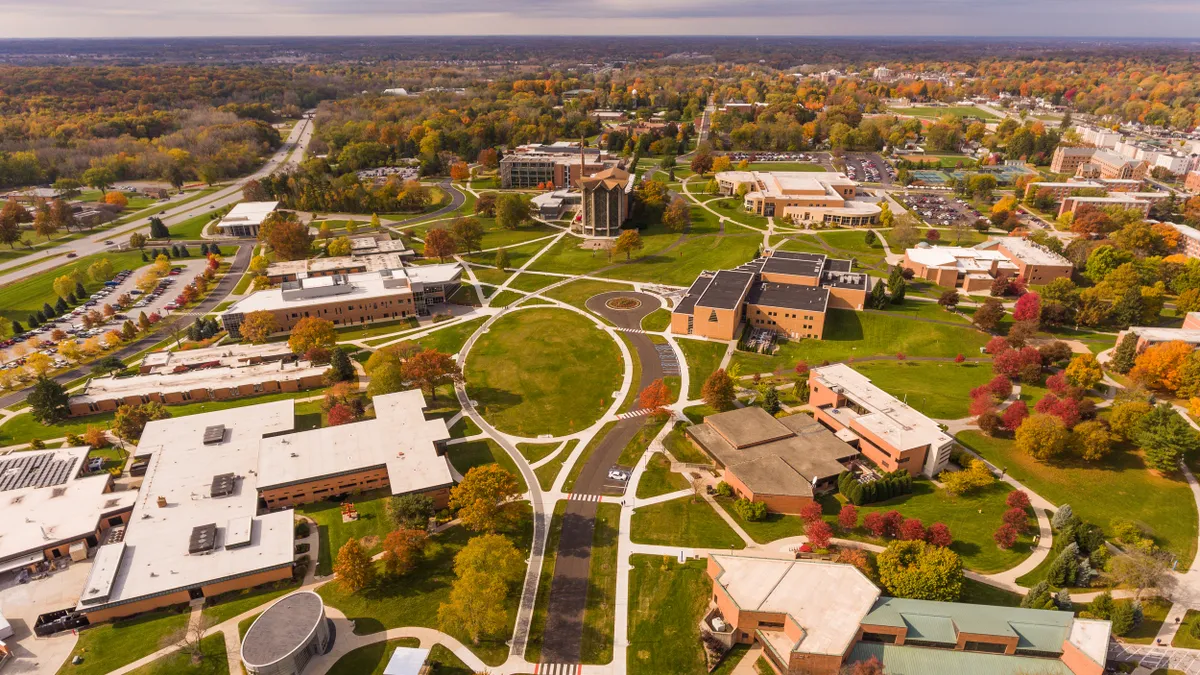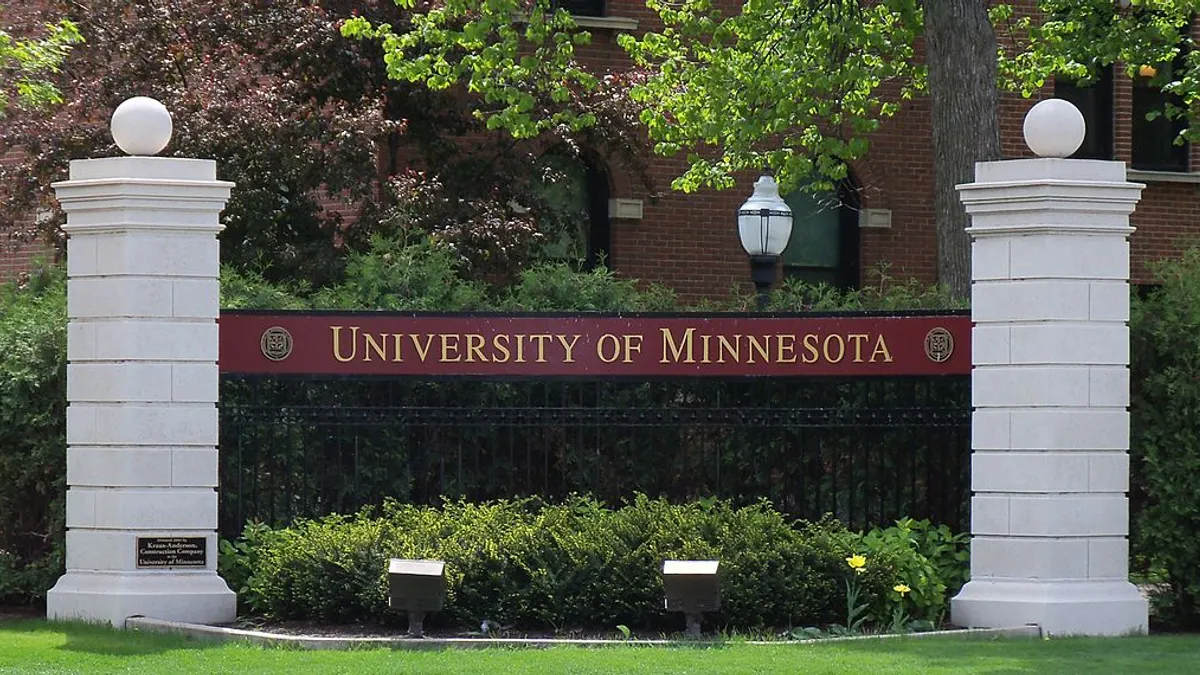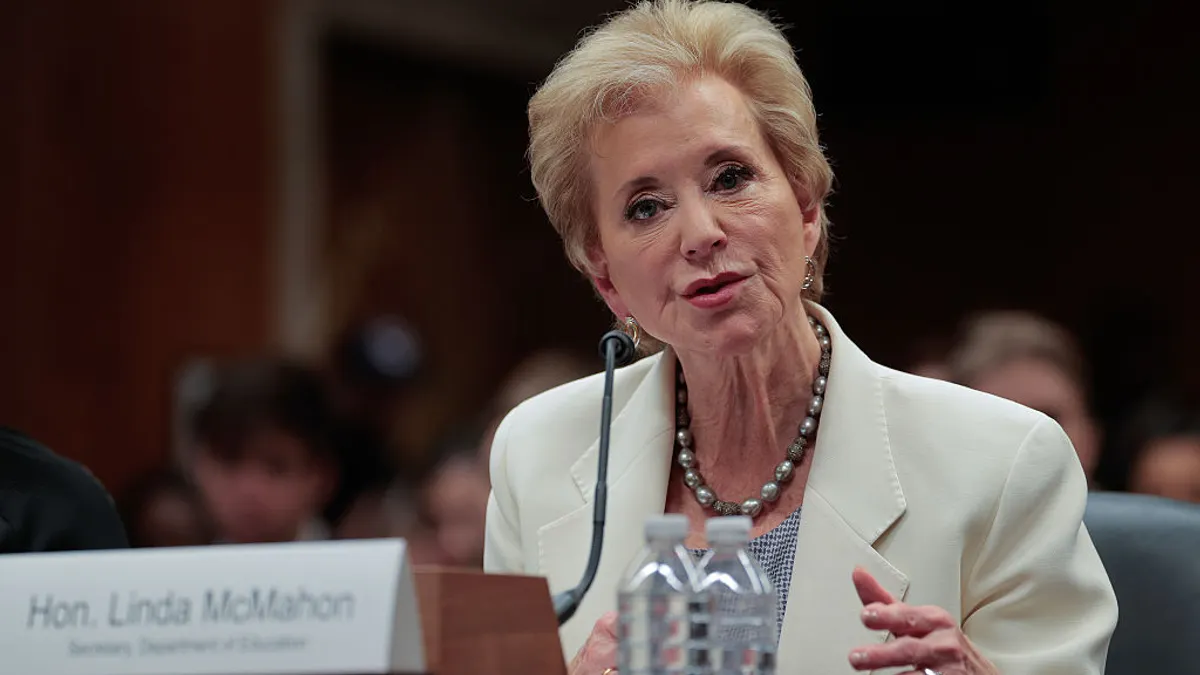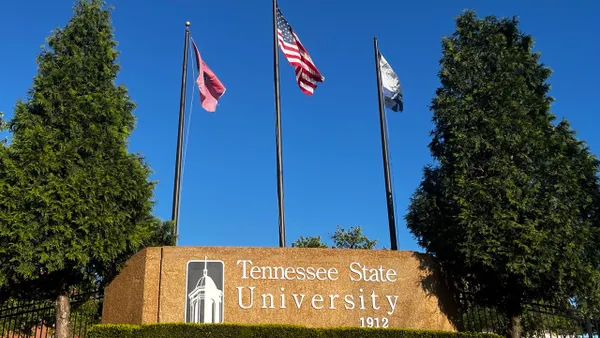Dive Brief:
- Valparaiso University, in Indiana, will consider cutting up to 28 programs as part of a multi-year review intended to rightsize its academic offerings.
- The private Lutheran institution offers too many majors, minors and graduate degrees in relation to its student body and faculty size, according to a memo from Eric Johnson, Valparaiso's provost and executive vice president for academic affairs. The 18 undergraduate programs under review serve approximately 3% of the university's students, he said.
- Final decisions are to come by the beginning of the fall 2024 semester. Programs selected for elimination are expected to end after the spring 2027 semester, though affected students will be able finish their degrees.
Dive Insight:
Valparaiso began a five-year operational review in 2021. The process included employee interviews, campuswide surveys and an analysis of enrollment data.
The university said it needs to adapt in the face of declining enrollment and a shrinking pool of traditional college-aged students.
Valparaiso has plenty of company. Across the higher ed sector, colleges and universities are bracing for an expected decrease in high school graduates stemming from a Great Recession-era decline in birth rates. Colleges that rely heavily on tuition revenue, as well as those located in the Northeast and Midwest, are especially affected by this demographic shift, Valparaiso said in 2022.
The university has already experienced dropping enrollment. It had 2,958 students in fall 2022, down 27.5% from 4,078 a decade earlier, according to federal data.
Over the next five months, Valparaiso will consider ending up to 18 undergraduate and 10 graduate programs in subjects like theology, public health, international relations and cybersecurity. The university expects a "limited reduction" of faculty positions to accompany the cuts but did not provide specific numbers.
Johnson noted that not all listed programs were certain to be eliminated. And even if they ended, related courses could still be taught.
At the same time, Valparaiso is considering launching new programs as a means of attracting students, Johnson said in his memo. The university will offer a master's in social work beginning this fall, and it could add more degrees based on market needs, he said.
As part of its strategic planning, Valparaiso also said it aims to increase net tuition revenue by 10% per student and is working to become a Hispanic-serving institution.
The U.S. Department of Education considers a college to be an HSI if at least a quarter of its undergraduate students are Hispanic. In fall 2022, 10% of Valparaiso's undergrads identified as Hispanic or Latino, according to federal data.












